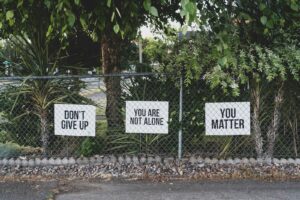Homeless deaths rise for fifth year
The number of people dying while homeless in England and Wales has risen for the fifth year in a row, reaching the highest level since statistics began in 2013.
According to the Office for National Statistics (ONS) an estimated 778 people died while homeless in 2019, an increase of 7.2% on the 726 deaths the previous year.
The most common cause of death was drug poisoning, which accounted for 37.1% of deaths. While the data also showed a large rise in the number of homeless people dying by suicide, and increase by 30.2% from 86 estimated deaths in 2018 to 112 in 2019.
The mean age at death was 45.9 years for homeless males and 43.4 years for females in 2019, compared with 76.1 years for men and 80.9 years for women in the general population of England and Wales, the ONS said.
Thangam Debbonaire MP, Labour’s shadow housing secretary, warned that while coronavirus will significantly increase the risks associated with sleeping rough this winter, homelessness services told Labour that they won’t have the tools they would usually use to help people off the streets.
In one case, less than one-third of the night shelter beds on offer last year will be available this winter. Thousands of rough sleepers risk being turned away from life-saving shelters.
She said: ‘The rapid increase in these deaths over the last six years is a shameful sign of Government failure and should raise alarm at the top of Government.
‘Before the Covid crisis, a record number of people were dying while homeless. This winter will be even more dangerous.
‘The government must commit that nobody will spend Christmas on the streets, this is a matter of life or death.’
The ONS figures come as the Ministry of Housing, Communities and Local Government announced rough sleepers across England will receive extra support to help them recover from drug and alcohol misuse.
Housing bosses said forty-three areas across England will receive support from a £23m government fund designed for those with drug and alcohol support needs to get the help they need to rebuild their lives. She said the programme will be boosted by a further £52m in 2021 to 2022.
Rough sleepers who are being provided with emergency accommodation during the pandemic as part of the government’s ‘Everyone In’ programme, and people who are currently rough sleeping, will be eligible for support. The programme will enable them to access drug and alcohol treatment, including detox and rehabilitation services.
This will be alongside wraparound support, such as access to mental health and substance dependence workers and peer mentors, who are key to working with vulnerable people in treatment services.
Paul Noblet, head of Public Affairs at homeless charity, Centrepoint, welcomed the funding but said more will be needed to get the this ‘national tragedy’ under control.
‘It is deeply troubling to see this latest increase in an already shameful statistic.
‘In 21st century Britain, it is simply unacceptable that people are dying on our streets because they have no home and too often no hope.
‘The pandemic has exposed how little funding has been left in place after a decade of cuts for charities and local councils to support rough sleepers, including thousands of 16 to 25 year-olds.
‘What is even more troubling is that the impact of covid-19 may well mean that the figures for 2020 are even worse.
‘The government has rightly put more money into tackling rough sleeping this year, but these figures show that even more funding is needed over the long-term to get this national tragedy under control.’
Minister for rough sleeping and housing, Kelly Tolhurst said: ‘We know that one of the main issues facing those sleeping rough, or at risk of homelessness, is misuse of drugs or alcohol and what a crippling effect these substances have on people’s lives.
‘While our ‘Everyone In’ campaign has helped to protect thousands of lives, we still need to work hard to break the cycle of rough sleeping for good.
‘This funding will provide thousands of vulnerable people with the support they need to get on the road to recovery to rebuild their lives away from the streets for good.’
Photo Credit – Pixabay
















